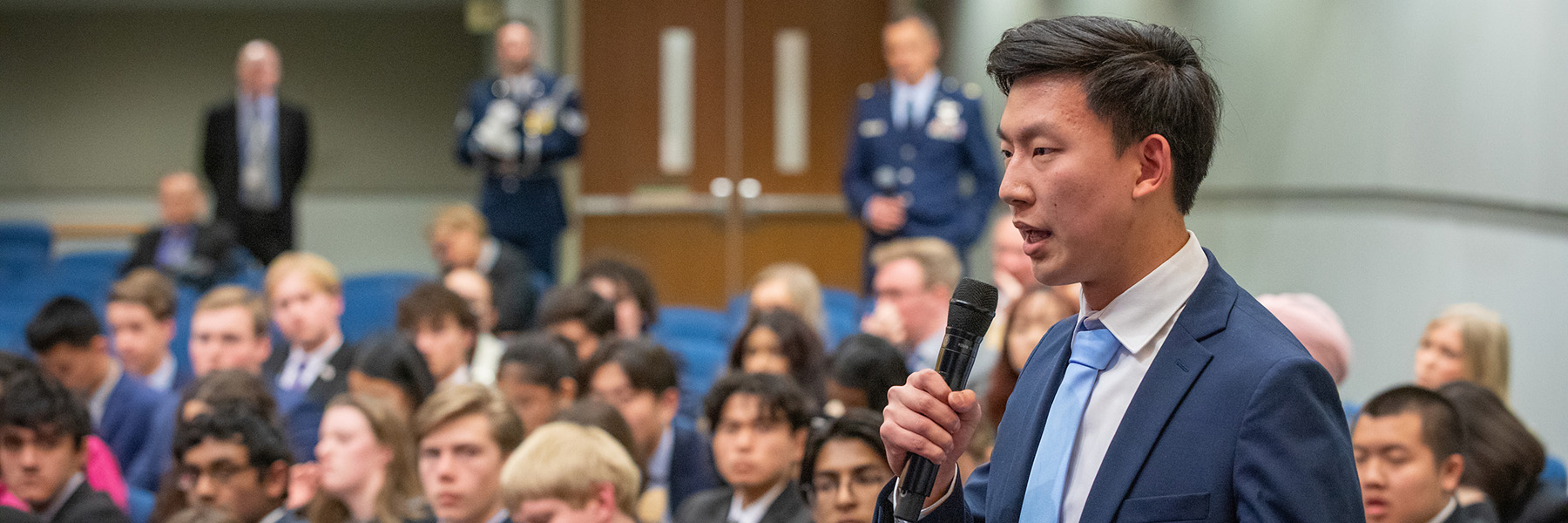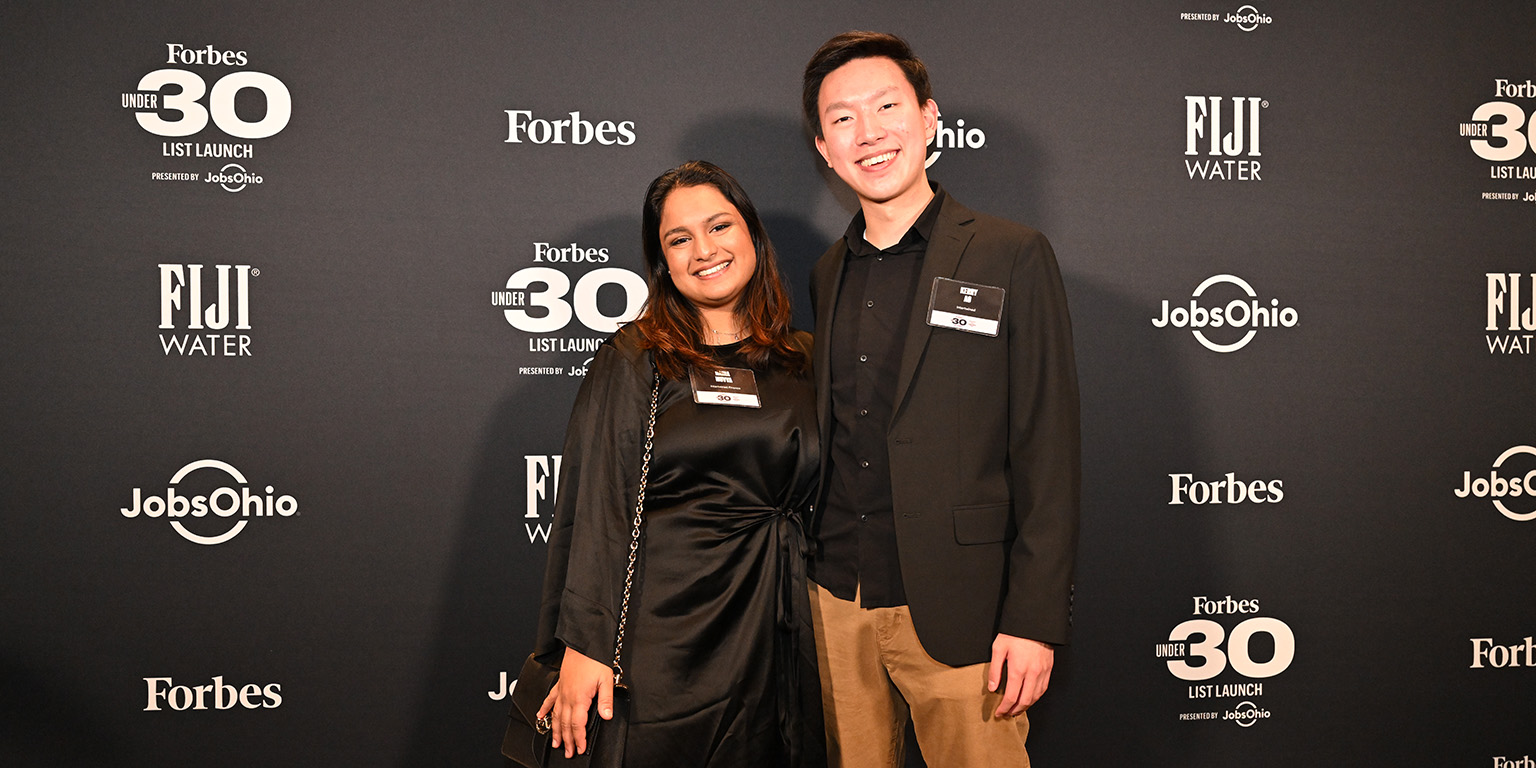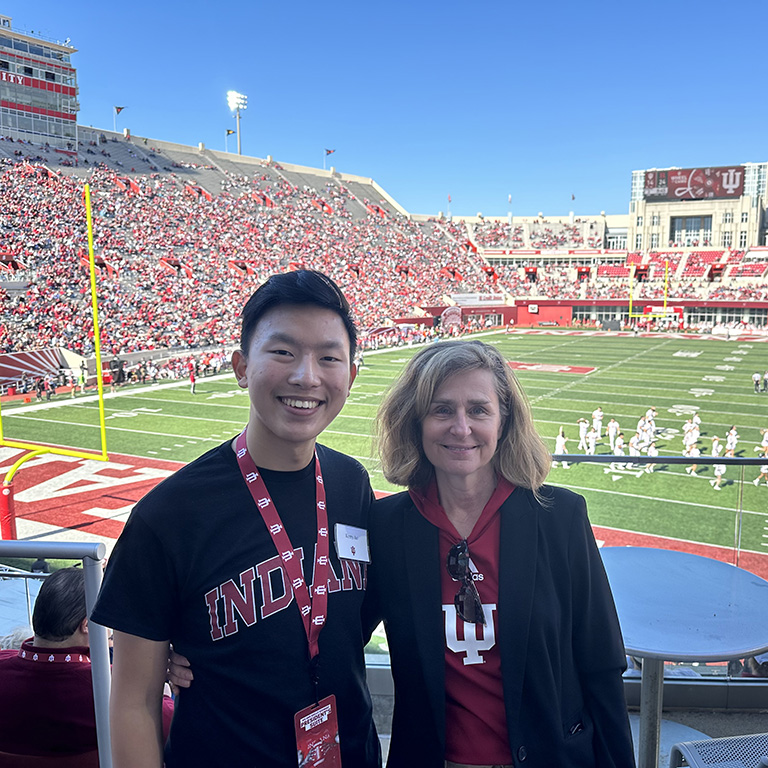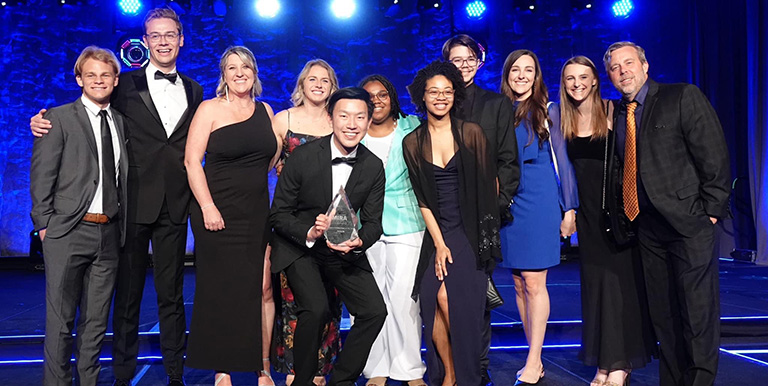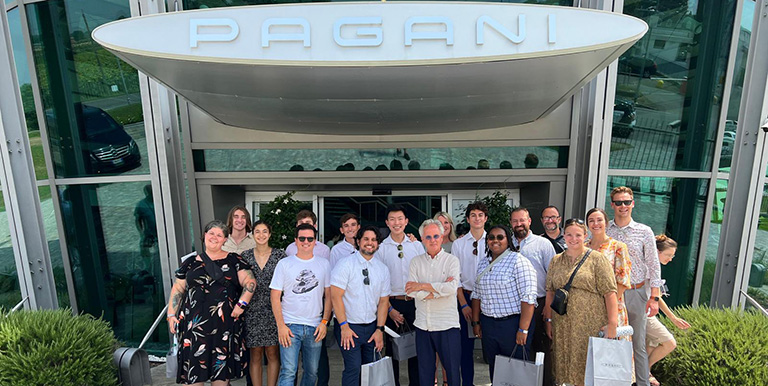At 17, Kerry and his team had already won the University of Evansville Changemaker Challenge and become some of the youngest venture-backed entrepreneurs in the United States. Since then, Kerry has been named to the Forbes 30 Under 30 list for education and earned the 2023 TechPoint Mira Award for Student Entrepreneur of the Year.
As a student entrepreneur, Kerry strives to help his generation view the world through a lens of opportunity — full of changemaking and positive community impact. As an advocate, he dives into socioeconomic research and promotes initiatives that drive such positive change.
What drew you to IU Bloomington?
Since I was a kid, I guess I’ve always had an entrepreneurial mindset. As an 8 y/o, I paraded a collection of rubber brand bracelets (RainbowLoom, if anyone remembers or cares) around the school cafeteria, selling them each at an astonishingly high price. Sadly, my operation was shut down when the afterschool childcare service said I wasn’t allowed to profit off other third graders.
It took another ten years before I attempted another venture. I ran an online e-commerce retail store and later embarked into the organic biodegradable dishwashing detergent market. When my cofounders and I started Intertwined, and as we quickly gained momentum, I knew I wanted to pursue a career in business. Obviously, Kelley had amazing statistics, and I was offered the Kelley Scholarship. The opportunity to graduate debt-free and stay close to home was too good to pass up. I’ve loved my experience at IU thus far and cannot wait to continue making memories.
What moved you to help peers develop their financial literacy?
To be fully transparent, I was just looking for a project to boost my college applications. In preparation for a startup pitch competition, I looked around and asked myself what the stupidest thing I saw was. A friend of mine was proudly showing how she bought hundreds of dollars’ worth of Sims 4 packs (no shade, I have the game too) with an entire paycheck. At that moment, I felt as though a physical light bulb appeared above my head.
I realized that as my friends and peers began working a part-time or seasonal job, we were building extremely poor spending habits—poor habits that translate when we became adults. After doing some more research, I discovered that 80% of Americans are financially illiterate. Financial literacy advocacy quickly became a passion of mine, and I began advocating for change via both business and policy. On the latter, I was fortunate to participate as one of two Indiana delegates at the United States Senate Youth Program, meeting and learning from our nation’s most prominent public officials. Supreme Court Justice Sonia Sotomayor told us, “You either get on board the bus or get hit by the bus.” This has been a humorous yet real mantra that I’ve tried to follow.
Who is using Intertwined? Do you have any favorite stories from users?
We have students around the world using Intertwined! We primarily work with K12 schools, higher education, and businesses as a financial wellness benefit. We recognize that not all schools have the budget space to purchase Intertwined’s services, so we work with banks to cover those schools’ costs. Via the Community Reinvestment Act (CRA), banks and financial institutions are federally mandated to invest financial literacy resources into the communities that they serve. The schools receive Intertwined for free, we generate a revenue, and the banks potentially get their credits and government ratings boosted higher.
Earlier this year, a teacher reached out saying one of her 8th graders hadn’t been able to access his account in over a week. At first, we weren’t sure what the problem was. After a couple of hours of intense investigation, we discovered that this particular student purchased trillions of penny stocks on our stock market simulator, which led to his account crashing. The teacher responded with, “I like his enthusiasm!” and we promptly place additional guardrails.
Do you have advice for students who want to take their ideas to the next level?
Stop complaining and finding excuses.
I don’t believe there is ever a “right” time to start a business. There will forever be problems in the world, problems to be solved. Opportunities are everywhere, and the only difference between entrepreneurs and everyone else is that entrepreneurs move now—no matter the circumstances or excuses. I strongly believe that the success of any startup depends on the self-motivation and drive of the founder to view “problems as opportunities” and bring valuable change to our society.
What is one of your favorite spots on campus? In Bloomington?
Since the opening of IU Innovates, that has been my go-to spot on campus. The coworking space has provided a spot for me to work alongside like-minded students, and I love connecting with entrepreneurs building the next big thing. I love the Turkuaz Café, and the only reason why I know the owner is because he was my Uber driver one day and happened to be a startup advisor. The coincidence!


